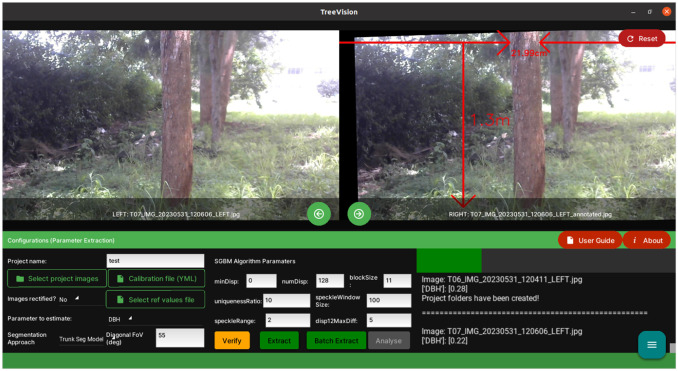Automated Tree Inventory Using Stereoscopic Photogrammetry

Background
Forest inventory plays a pivotal role in environmental management by providing crucial data useful for finding timber volume estimates, informing timely policy changes by concerned stakeholders, for national and international reporting, among others. Collecting individual tree parameters, such as tree heights and trunk diameters, is essential for assessing forest health and biodiversity. Modern non-contact technologies, like photogrammetry and LiDAR, offer automated tree inventory capabilities, making survey excursions quick and efficient. These advancements facilitate rapid and accurate data collection, which are vital for sustainable forestry practices.
Accomplishments
Stereoscopic vision is a type of close-range photogrammetry that applies the principles of multiple-view geometry to create the 3D map of a scene. It offers significant advantages over other techniques such as structure from motion (SfM) and LiDAR at measurement tasks. Its low computation software tool known as TreeVision that combines stereoscopic vision and deep learning to automatically estimate tree biophysical parameters such as diameters at breast height, tree heights, and crown diameters. The tool comprises three modules for capturing images, calibrating cameras, and extracting tree measurements from stereoscopic images. It is the result of more than two years of research and development effort at our lab and has already been tested in a real forest setting. It is available online for anyone to download and try out. You can read more about TreeVision in our research paper.
Next Steps
At DSAIL, we are very proud of what we have already achieved in creating a user-friendly tool that automates the work of tree inventory. We are currently planning to carry out more real-world deployments of the application in forests to test its limits. We also plan to add more features onto it to facilitate forest inventory data storage and analysis in order, thus making it a practical and useful tool for foresters.